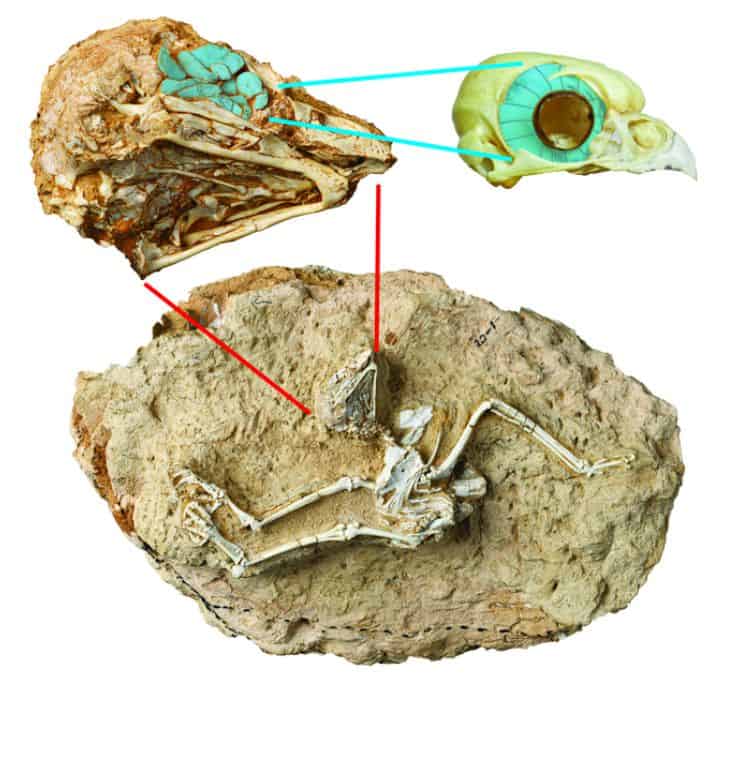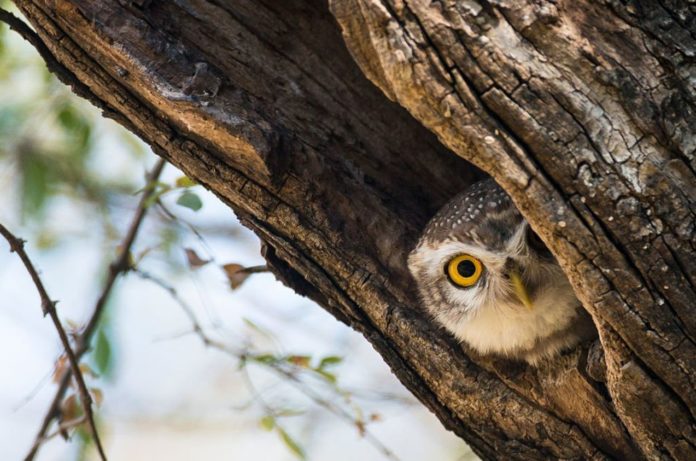The owl is well known for its nocturnal habits, but a fossil found in China suggests a species – which lived millions of years ago and which until then was unknown to science – with an unprecedented diurnal habit.
In honor of this eccentricity, the species was given the name Miosurnia diurna, and the findings were published in the journal Proceedings of the National Academy of Sciences, last Monday.
The fossil was unearthed in the Chinese province of Gansu, and it even showed visible traces of the last meal of the owl in question: a small mammal. Although well preserved, the fossil had some structures that had to be digitally reconstructed.
After the eye bones were digitally reassembled, the team performed detailed statistical analyses, comparing the scleral ossicles of the fossil owl with those of 55 species of reptiles and more than 360 species of birds. In the article, the team describes that they used a statistical method to examine the evolution of bird behavior to understand whether it is nocturnal or diurnal.

These patterns of activity in the bird family tree, which includes hundreds of species, indicated the existence of a group called Surniini, which includes this discovered species. The group was adept at diurnal behavior, which facilitated this conclusion.
“It is the amazing preservation of the bones of the eye in this fossil skull that allows us to see that this owl preferred the day and not the night,” says Dr. LI, first author of the study.
Their findings demonstrate that whereas all extant owls’ ancestor was almost probably nocturnal, the Surniini group’s ancestor was diurnal. The possibility that Surniini’s ancestor was diurnal climbed to 100% when the scientists included the Miosurnia diurna fossil in the research. Both behavioral evidence and the eye itself attest to this owl group’s evolution of diurnal behavior.
“This fossil skeleton turns what we thought we knew about the evolution of owls on its head,” adds the first author.
Miosurnia diurnia is the first record of an evolutionary process spanning millions of years and across the globe in which owls evolved to “reject the night for some fun in the sun,” according to Dr. Thomas Stidham, another study’s lead author.
Source: 10.1073/pnas.2119217119
Image Credit: Getty
You were reading: Owl fossil found in China reveals unprecedented species with rare diurnal habit
